Stanford Medicine researchers, after creating an AI-based algorithm to find complex structural variants in the human genome, learned those variants likely contribute to psychiatric disease.
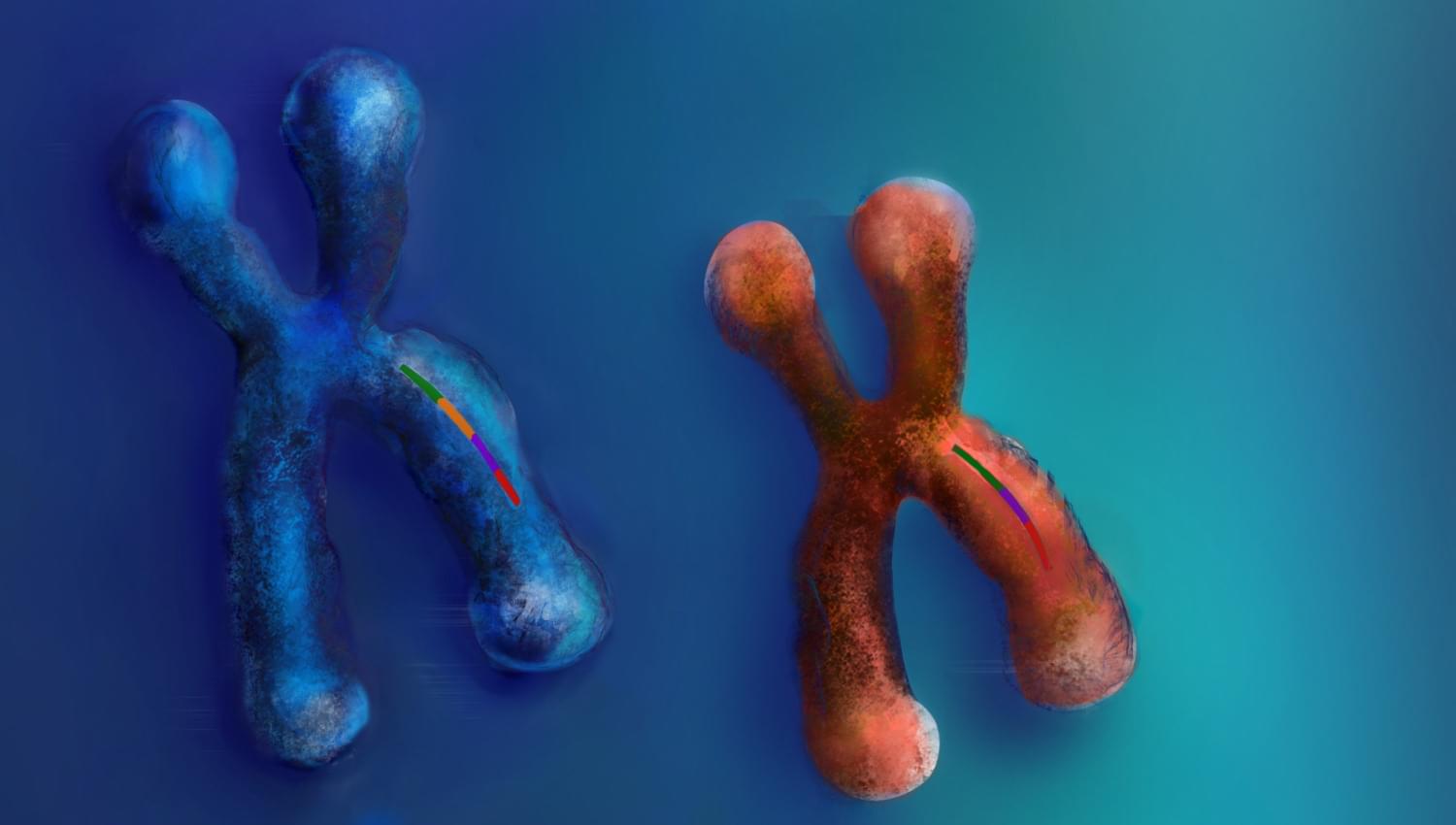

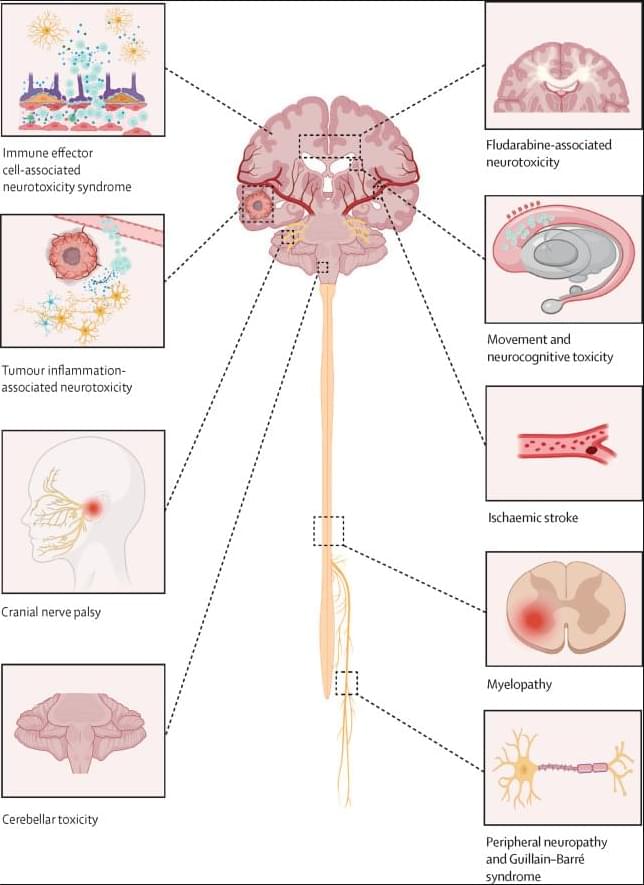
Neurological complications are an important concern in patients undergoing chimeric antigen receptor (CAR) T-cell therapy. Consensus guidelines inform the management of immune effector cell-associated neurotoxicity syndrome (ICANS). However, these guidelines are based on the early clinical experience with CD19 targeting CAR T cells in B-cell malignancies. In contrast, there are so far no published best practice recommendations on the current management of other non-classical neurological complications, which frequently develop after CAR T-cell infusion and cause clinically significant neurotoxicity.
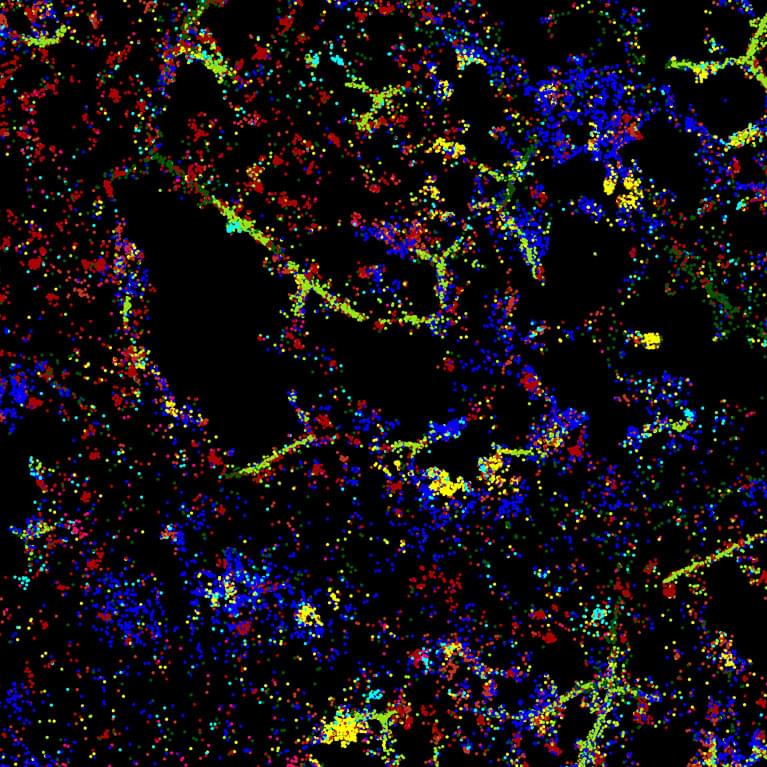
LA JOLLA—Human bodies defend themselves using a diverse population of immune cells that circulate from one organ to another, responding to everything from cuts to colds to cancer. But plants don’t have this luxury. Because plant cells are immobile, each individual cell is forced to manage its own immunity in addition to its many other responsibilities, like turning sunlight into energy or using that energy to grow. How these multitasking cells accomplish it all—detecting threats, communicating those threats, and responding effectively—has remained unclear.
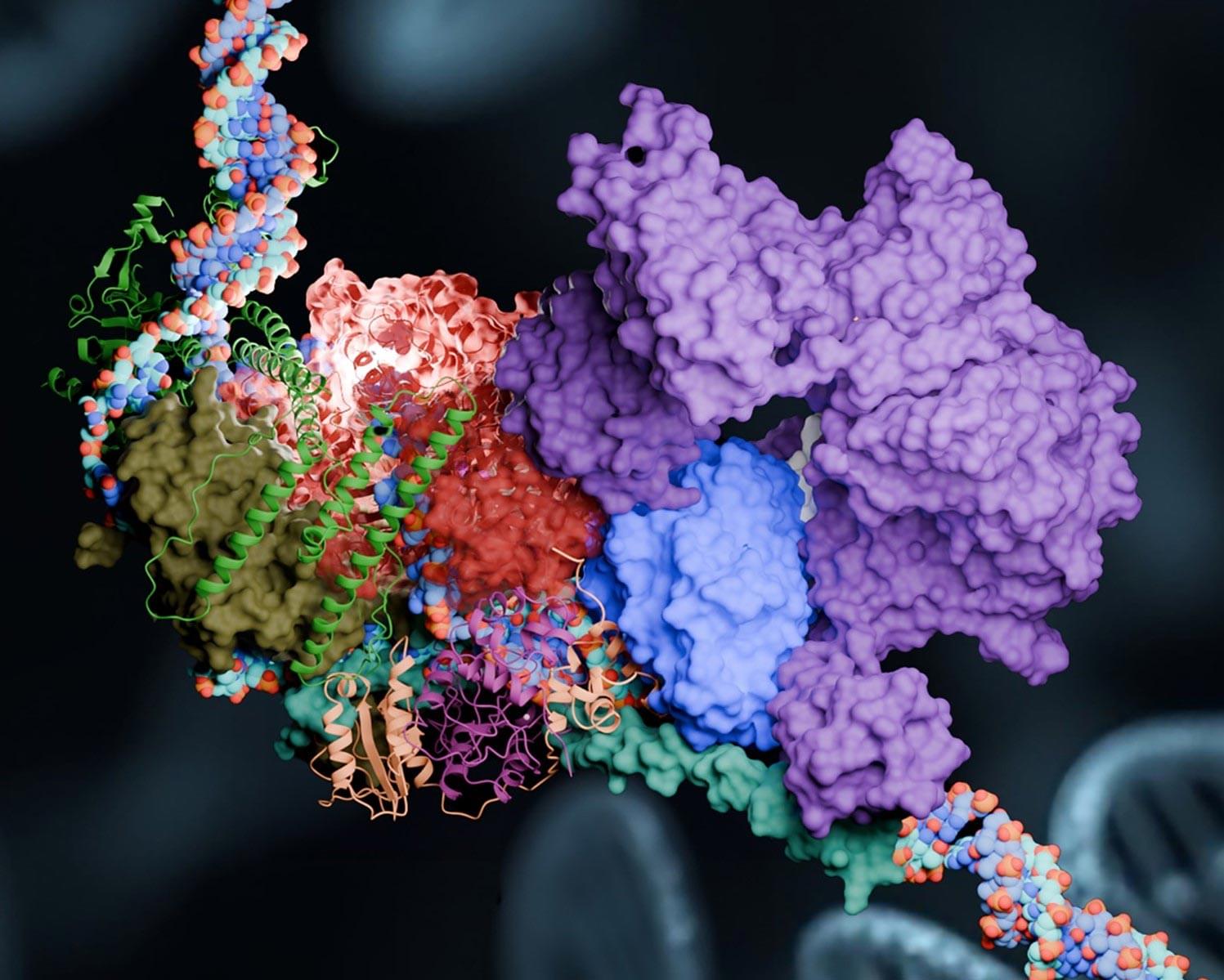
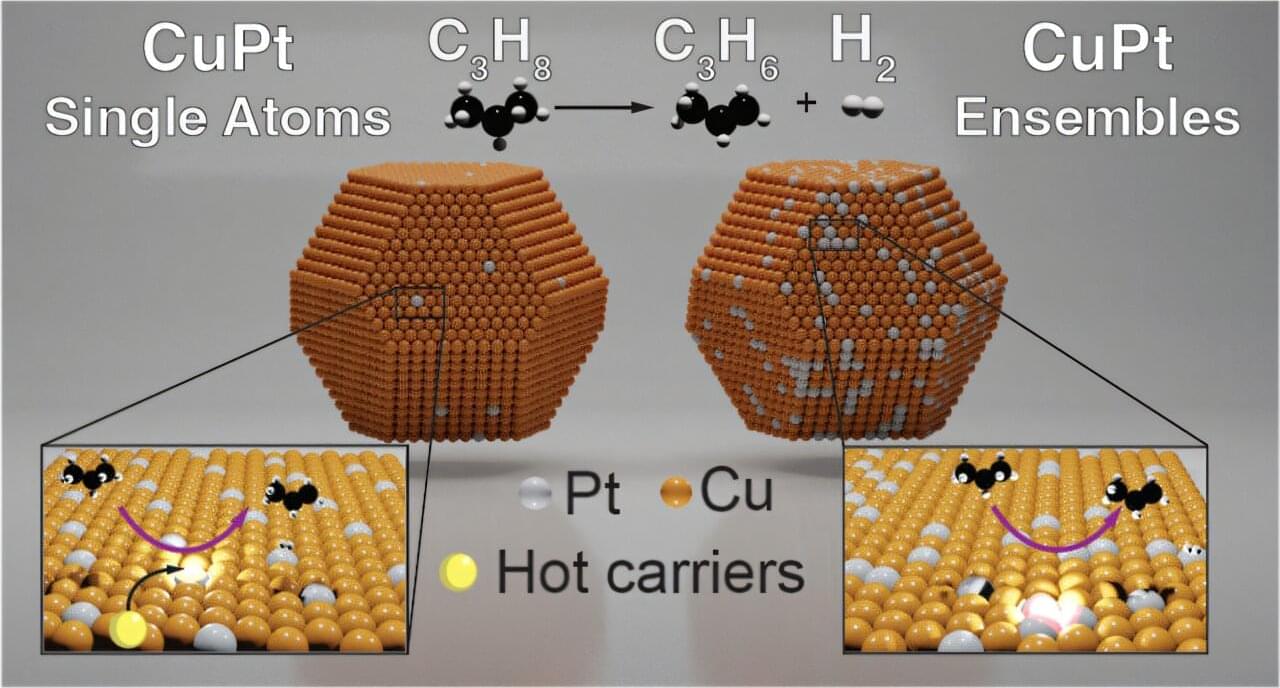
More than 150 million metric tons of propylene are produced annually, making it one of the most widespread chemicals used in the chemical industry.
Propylene is the basis for polypropylene, a polymer used in everything from medical devices to packaging to household goods. But most propylene is produced through steam cracking, a high-energy process that uses heat to break down crude oil into smaller hydrocarbons.
Now, Northwestern University chemists have found a way to create propylene using light. Their findings show that a nanoengineered photoactive catalyst can make propylene directly through a process called nonoxidative propane dehydrogenation (PDH).
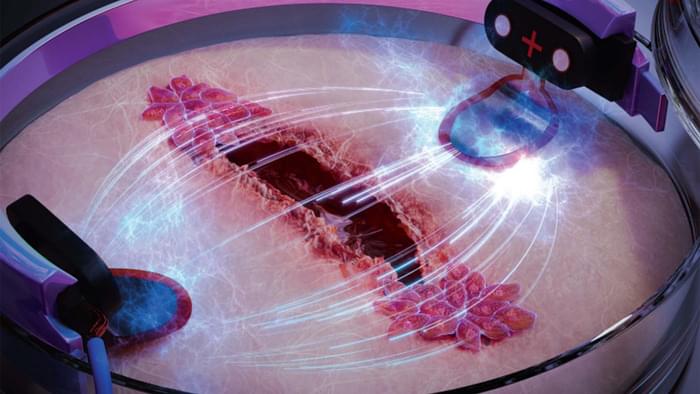
Researchers from both Chalmers University of Technology, Sweden, and the University of Freiburg, Germany, have been collaborating on a project to help those who suffer from chronic wounds heal faster than ever before and therefore negate the possibility of amputation in severe cases.
Commonly a small wound does not lead to any serious complications; however, for those with diabetes, spinal injuries or poor blood circulation, a small wound means a greater risk of infection and chronic wounds – which in the long run can lead to much more serious consequences such as amputation.
Maria Asplund, Associate Professor of Bioelectronics at Chalmers University of Technology and head of research on the project explained that “Chronic wounds are a huge societal problem that we don’t hear a lot about. Our discovery of a method that may heal wounds up to three times faster can be a game changer for diabetic and elderly people, among others, who often suffer greatly from wounds that won’t heal.”
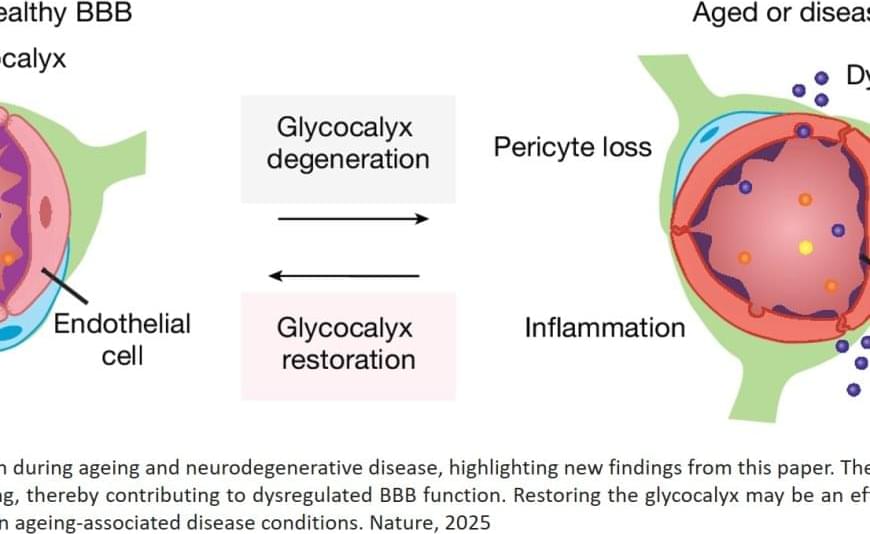
In a study in aging mice, the first author has uncovered striking age-related changes in the sugary coating – called the glycocalyx – on cells that form the blood-brain barrier, a structure that protects the brain by filtering out harmful substances while allowing in essential nutrients.
“The glycocalyx is like a forest,” the author explains. “In young, healthy brains, this forest is lush and thriving. But in older brains, it becomes sparse, patchy, and degraded.”
These age-related changes to the glycocalyx weaken the blood-brain barrier, the author found. As the barrier becomes leaky with age, harmful molecules can infiltrate the brain, potentially fueling inflammation, cognitive decline, and neurodegenerative diseases.
The results were striking: In older mice, bottlebrush-shaped, sugar-coated proteins called mucins, a key component of the glycocalyx, were significantly reduced. This thinning of the glycocalyx correlated with increased permeability of the blood-brain barrier and heightened neuroinflammation.
When the team reintroduced those critical mucins in aged mice, restoring a more “youthful” glycocalyx, they improved the integrity of the blood-brain barrier, reduced neuroinflammation, and measurably improved cognitive function.
“Modulating glycans has a major effect on the brain – both negatively in aging, when these sugars are lost, and positively, when they are restored,” the lead says. “This opens an entirely new avenue for treating brain aging and related diseases.”
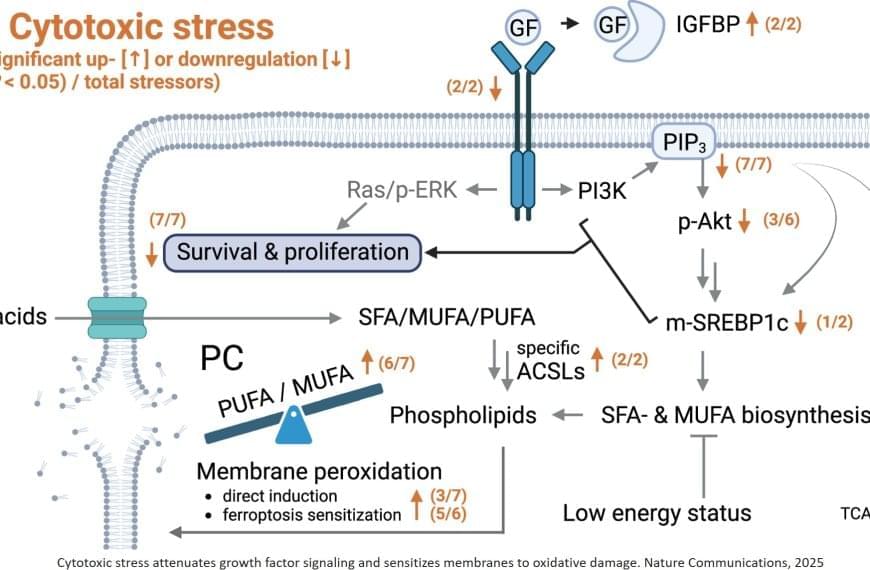
While studying the effect of various cytotoxic natural products on different cancer cells, the researchers have discovered a previously unknown mechanism that could point to new therapeutic options in the event of such resistance.
“When the cancer cells come into contact with the active substance, they show a stress reaction. Even at this very early stage, long before they might possibly die, reduced growth signals cause increased levels of polyunsaturated fatty acids to be incorporated into the membrane. This makes them more susceptible to a particular cell death pathway, ferroptosis,” explains the researcher, adding: “The mechanism appears to be universal. This means that it can be observed in all the cancer cells examined and in most cytotoxic agents.” During ferroptosis, polyunsaturated fatty acids in cell membranes are damaged by oxygen radicals. The membranes become porous and the cell dies.
These findings create a basis for the systematic research of innovative treatment strategies for therapy-resistant tumors. Even if conventional chemotherapeutic agents do not kill the cells, they at least trigger a membrane change that can be utilized. “By adding substances that induce ferroptosis, cancer cells could ultimately be eliminated completely,” the author suspects.
One particular challenge in the treatment of cancer is therapy resistance. An international research team has now discovered a mechanism that opens up new treatment strategies for tumors in which conventional chemotherapeutic agents have reached their limits.
“Cytotoxic agents from nature lead to an increased incorporation of polyunsaturated fatty acids into the membrane of cancer cells. This makes them more susceptible to ferroptosis, a type of cell death, at a very early stage,” reports the lead author of the study, which has just been published in the scientific journal Nature Communications.
In the treatment of cancer with chemotherapy, natural substances, such as those from the Chinese “happy tree”, play an important role. They interfere with vital cell processes and thereby damage them. However, a few cancer cells are often able to adapt to these challenges and survive. This is called resistance.
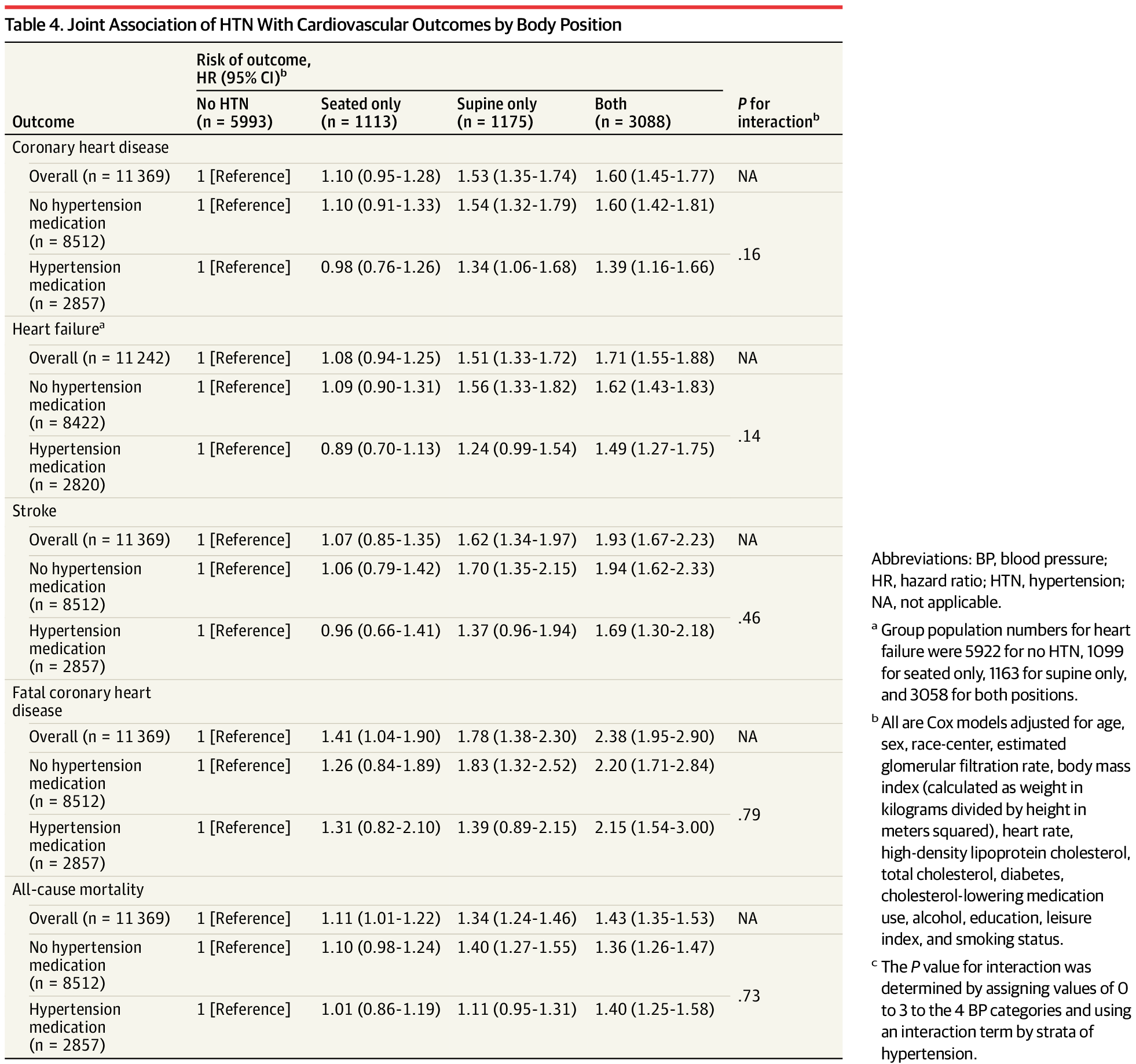
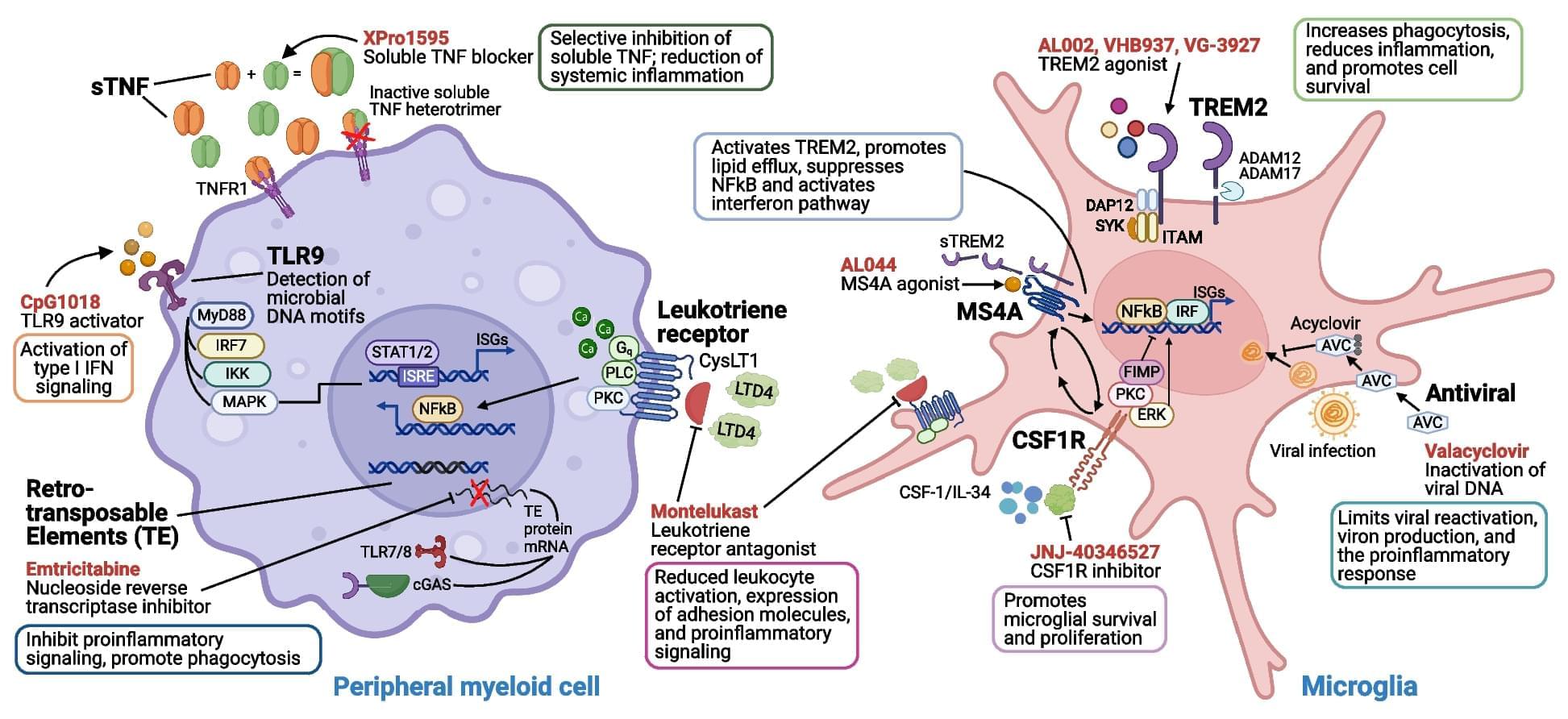
Immune mechanisms play a fundamental role in Alzheimer’s disease (AD) pathogenesis, suggesting that approaches which target immune cells and immunologically relevant molecules can offer therapeutic opportunities beyond the recently approved amyloid beta monoclonal therapies. In this review, we provide an overview of immunomodulatory therapeutics in development, including their preclinical evidence and clinical trial results. Along with detailing immune processes involved in AD pathogenesis and highlighting how these mechanisms can be therapeutically targeted to modify disease progression, we summarize knowledge gained from previous trials of immune-based interventions, and provide a series of recommendations for the development of future immunomodulatory therapeutics to treat AD.